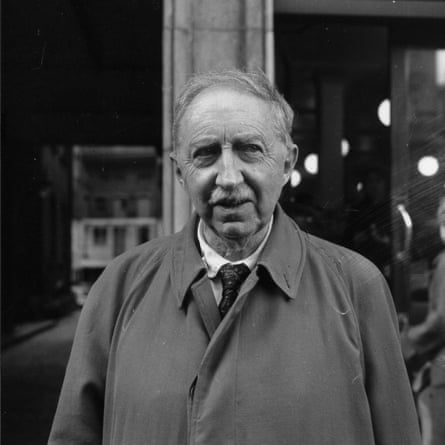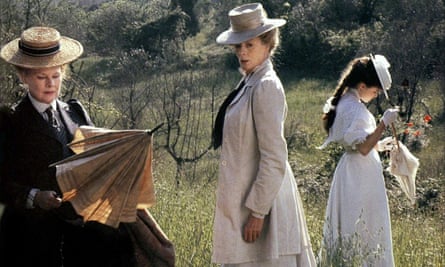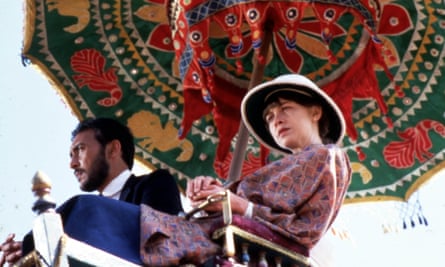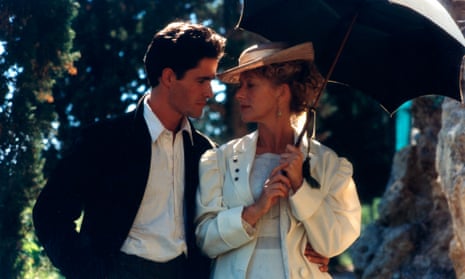If reading is one of the pleasures – and necessities – of youth, rereading is one of the pleasures – and necessities – of age. You know more, you understand both life and literature better, and you have the additional interest of checking your younger self against your older self. Occasionally I will reread a book in exactly the same copy as I first did decades previously: and there, in, say, a student text of a Flaubert novel, I will find all those annotations which now, initially, embarrass. Key passages underlined, exclamations in the margin of “Irony!” or “Metaphor!” or “Repeated image!” and so on. And yet often, naive and excited as they seem, these comments are pretty much ones I might be making – if not so explicitly – several decades on. That younger reader wasn’t wrong: it was ironic, it was metaphorical, it was a repeated image. I don’t think you are a more intelligent reader at 65 than at 25; just a more subtle one, and better able to make comparisons with other books and other writers.
Sometimes you change your mind about a writer. Perhaps, when you first read them you were only pretending to admire what you’d been told to admire. But also your tastes change. For instance, at 25 I was more open to writers telling me how to live and how to think; by 65 I had come to dislike didacticism. I don’t want to be told how to think and how to live by, say, Bernard Shaw, or D H Lawrence or the later Tolstoy. I don’t like art – especially theatrical art – whose function seems to be to reassure us that we are on the right side. Sitting there complacently agreeing with a playwright that war is bad, that capitalism is bad, that bad people are bad. “You don’t make art out of good intentions,” is one of Flaubert’s wiser pronouncements.
Sometimes, when our tastes become more defined, they become narrower. But this doesn’t have to be the case. I want to address a rarer changing of the mind, which is altogether more enriching: when a writer you had previously been indifferent to, indeed actively despised, suddenly makes sense to you, and you realise – with, yes, a kind of joy – that at last you see the point of them.
I first read EM Forster when an English master handed out a list of Great Books to be read one summer holiday. A Passage to India was on that list. I still have the Penguin edition – a reprint of 1960, costing three shillings and sixpence – in which I read the novel. There are no notes in the margin, not a single cry of “Irony!” It clearly made little impression on me. Later, of my own volition, when I was about 20, I read A Room With a View, and actively began to take against Forster. It seemed to me a fusty, musty, dusty read, with rather antique prose and a storyline and characters which failed to engage me. The English novelists of the next generation – Huxley, Waugh, Greene – spoke to me with much more clarity.
What often happens, when you decide against a writer, is that everything thereafter tends to confirm that prejudice. I read parts of Forster’s Aspects of the Novel and discovered his famous dictum that “Yes – oh dear yes – the novel tells a story ... and I wish that it was not so.” This struck as me as exceedingly ... feeble. Of course the novel tells a story, I thought, and if you aren’t up to telling a story, why write a novel? And indeed Forster had stopped writing fiction at 45, then lived on for another 46 years, in the process becoming a grander and grander old man. Nowadays, I would admire a writer who falls silent because he or she has nothing more to say; in my youth, I was less forgiving.

And then there was that other Forsterian dictum: “If I had to choose between betraying my country and betraying my friend, I hope I should have the guts to betray my country.” This may sound fine in theoretical, high-minded Bloomsburyite discussions, in which the personal life is held of greater value than the public life. But try telling that to, for instance, the families of those betrayed by Kim Philby. How many deaths was he responsible for? Forty or 50, perhaps. Rather more consequential than just doing the dirty on a chum.
But there was a final, and barely sensible – but to me very powerful – reason for cold-shouldering Forster. I was and remain a great admirer of Ford Madox Ford. He was a rare English fictional modernist, with two masterpieces – The Good Soldier and Parade’s End – to his credit, and at least a dozen more very interesting books; underappreciated when he was writing, and only a little less so nowadays. Forster and Ford met at a country-house weekend in the summer of 1914, at which Ford seems to have been the only person present to see clearly that war was inevitable. Afterwards Forster snootily noted in his diary that Ford was “rather a fly-blown man of letters”. That was a bad call. And then there was the fact that, every time I went into a bookshop, new or secondhand, and looked to see what they had by Ford Madox Ford, he would be crowded out by the alphabetical proximity of shelf-yards of EM Bloody Forster. And, just to show that I wasn’t merely mad, I had another go at A Room With a View in my 40s. No, it still didn’t cut the mustard. And that, seemingly, was that.

So what made me change my mind? It began from a quite unexpected source, an anthology of food writing. There I came across Forster’s description of the breakfast he was served on an early-morning boat train to London in the 1930s:
“Porridge or prunes, sir?” That cry still rings in my memory. It is an epitome – not, indeed, of English food, but of the forces that drag it into the dirt. It voices the true spirit of gastronomic joylessness. Porridge fills the Englishman up, prunes clear him out, so their functions are opposed. But their spirit is the same: they eschew pleasure and consider delicacy immoral ... Everything was grey. The porridge was in grey lumps, the prunes swam in grey sauce ... Then I had a haddock. It was covered in a sort of hard, yellow oilskin, as if it had been in a lifeboat, and its inside gushed salt water when pricked. Sausages and bacon followed this disgusting fish. They, too, had been up all night. Toast like steel: marmalade a scented jelly. I paid the bill dumbly, wondering again why some things have to be. They have to be because this is England, and we are English.
This wasn’t at all like my long-formed picture of the novelist: it was funny, subversive, delightfully unpatriotic, and all too true by the sound of it. But this might just have been a moment of aberration, I assumed. What finally did the trick was just as left-field: a conversation I had a few years later with a friend about opera. In my 60s I belatedly fell in love with opera, and we were discussing its representation in fiction. “Oh,” she said, “and there’s that scene in a provincial Italian opera house in Where Angels Fear to Tread.” It was Forster’s first novel, published in 1905. Not one I’d tried and failed with before. It looked agreeably short.
And then it surprised me from the very first chapter: it was swift, witty and satirical, with a fine eye for English manners and English snobbery. Here are a couple of lines conveying the essence of the starchy, stuck-up Harriet: “Harriet, though she did not care for music, knew how to listen to it;” and “‘Everyone to his taste!’ said Harriet, who always delivered a platitude as if it was an epigram.”
The opera-house scene, when I got to it, was brilliant. The work being performed is Lucia di Lammermoor, a knowing nod to the same opera’s famous appearance in Madame Bovary. This in itself showed spirit, if not recklessness: a first novelist, five years into the 20th century, taking on one of the great scenes of the greatest 19th-century novel. And yet Forster emerges unharmed by the comparison. His opera scene is his own. The production of Lucia is camply bad; the local audience riotously over-relaxed; the English visitors embarrassed and stuffily disapproving. It could have been just coarsely satirical and humanly disparaging; instead, the tone - of ironical amusement at the cheerful follies of the world – is perfectly pitched. And the scene also contains the following lines, which had me reaching for my annotating pencil:
There is something majestic in the bad taste of Italy; it is not the bad taste of a country which knows no better; it has not the nervous vulgarity of England, or the blinded vulgarity of Germany. It observes beauty, and chooses to pass it by. But it attains to beauty’s confidence.
Where was that fusty, musty, dusty writer I had imagined Forster to be? Nowhere at all in this first novel of his. Next I read Howards End, and finally realised what a grown-up novelist Forster is; how serious his concerns; how good he is on marriage, friendship, love and hopeless desire; how well he writes about women; on the choice between art and life, art and money, taste and vulgarity; how well he understands the power of convention and the unheroic but necessary journeys a life entails; how wry and sly he can be, and yet how powerfully reflective. Perhaps I had mistaken his manner, or been expecting something he wasn’t offering; or maybe, previously, I hadn’t known enough about life to appreciate him.

I read on, with The Longest Journey – publicly, his least successful novel, and yet his own favourite. There I discovered a writer who was also formally audacious in a way I would never have anticipated: in his handling of time; in the way he gives us a protagonist’s backstory late in the day; and in his killing-off of characters just as we assume they are about to become important. One reviewer calculated that – infants excepted – more than 44% of the adult population of the novel fall beneath the author’s capricious sword.
I don’t regret my decades of failing to appreciate Forster. Rereading would be a dull and complacent business if it always resulted in a simple confirmation of what you had previously thought. And the pleasure of being proved wrong can be a genuine pleasure. But as you may imagine, this experience has made me reconsider some other speedy judgments of my youth. Who else might I have to change my mind about? Hmm. Anthony Powell? Saul Bellow? Iris Murdoch? Actually, despite what I said earlier, I’ve recently been reading some of DH Lawrence’s short fiction, and I’m beginning to think I might – just possibly – be wrong about him too.

Comments (…)
Sign in or create your Guardian account to join the discussion